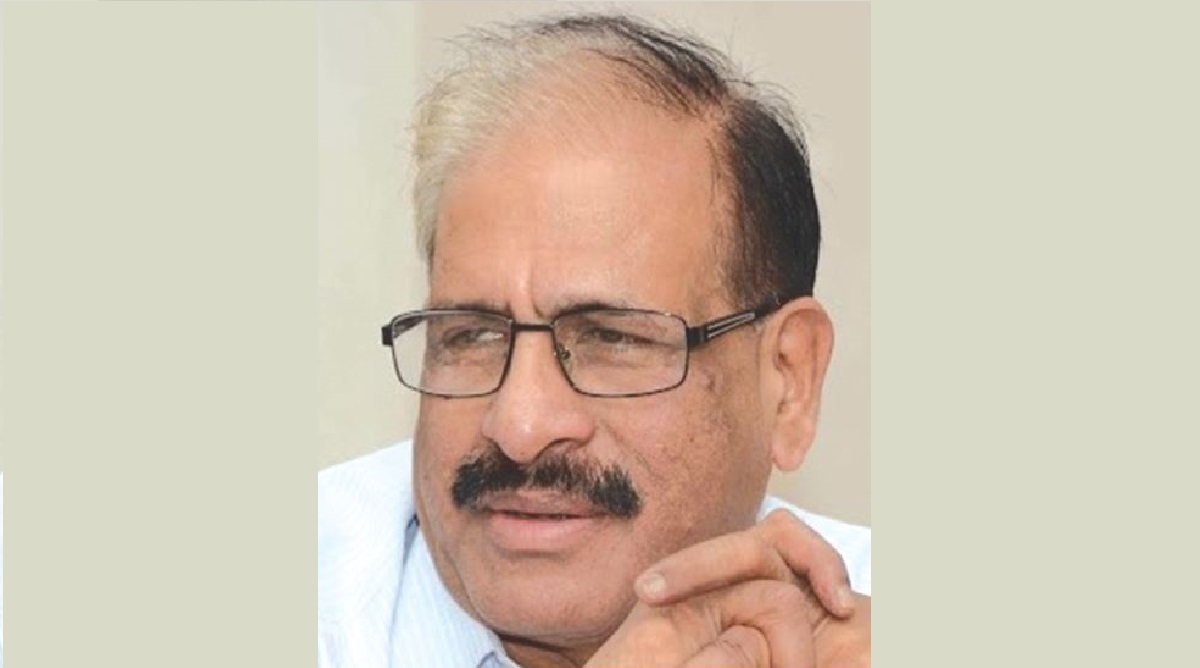The Eastern path~I
India's Act East policy was launched in 2014. As pointed out by Prime Minister Modi, it rests on four pillars: Culture, Commerce, Connectivity and Capacity.
In an e-mail interview to DEEPAK RAZDAN, Mohanan, 63, was reluctant to discuss the PLFS report, not yet officially released, but answered questions on how important reliable data is for government policy makers and private investors.

(Photo: SNS)
PC Mohanan resigned in January end as acting chairman of the National Statistical Commission (NSC) over withholding of the National Sample Survey Office’s Periodic Labour Force Survey (PLFS) 2017- 18 containing employment data, even after the report had been vetted by the NSC in December 2018. Mohanan said, “I have resigned from NSC. We thought that the commission is not very effective nowadays and we also thought that we are not able to discharge the commission’s responsibility.”
The resignation set off speculation whether the Survey contradicted official claims on job creation. The government’s response was that the report was still a draft, not ready for release. The NSC was set up in July 2006 following recommendations of the C Rangarajan Commission, which reviewed the country’s entire statistical system. The NSC mandate was to evolve policies, priorities and standards in statistical matters.
Holding a Master’s degree in Statistics from Bangalore University, Mohanan has had a distinguished career as a statistician, and served as consultant for ADB, UNDP, ILO and FAO. He retired as a Deputy Director General from Central Statistical Organisation in 2015 and joined the NSC in June 2017 as a member. His tenure was to end in June 2020.
Advertisement
In an e-mail interview to DEEPAK RAZDAN, Mohanan, 63, was reluctant to discuss the PLFS report, not yet officially released, but answered questions on how important reliable data is for government policy makers and private investors. Excerpts:
Q: India celebrates Statistics Day every year. How significant can data be for a fast-growth economy like India?
A: Data is important for every economy. In India, this was recognised immediately after Independence when the country embarked on planned economic development. Over the years data has become important not only for government but also for private corporates for investment decisions, for media and public for public debates and especially for researchers also. Citizens in a democratic country are entitled to public information. Faster growth can take place only when reliable information is available for economic decisions. Trusted data is a key input in inviting foreign investments.
Q: What is the objective of the Periodic Labour Force Survey?
A: We used to have employment surveys once in five years, while most countries have employment data much more frequently, say quarterly, annually, etc. PLFS was initiated with the objective of having an annual series of labour force data as also quarterly data for urban areas.
Q: The PLFS envisaged reporting periodic indicators on labour remuneration also?
A: Yes. Labour remuneration as also earning from self-employment are collected. The periodic survey has a component of visiting a household repeatedly so that changes in the employment situation can be collected more efficiently.
Q: Do NSSO surveys cover jobs like taxi aggregators and startups?
A: NSSO surveys are household surveys where data is collected from every member in the household. In this process no activity is excluded. An impression was created by suggesting that NSSO does not cover taxi aggregators, new-age jobs, informal sector, etc. This is not at all true.
Q: How different is the Labour Bureau data from NSSO data?
A: Labour Bureau had a quarterly survey collecting data from the industries for selected sectors every month to estimate the changes in jobs. Later they also initiated an annual employment survey using household as the unit for survey. However, recent results from these surveys are not available and I am not sure if these are still conducted.
Q: How challenging is it to collect data on agriculture in a country like India?
A: Since employment data is collected from households, there is no specific problem for agricultural households. Though there are issues like measuring earnings in the case of self-employed persons in agriculture unlike in the case of wage employment. However, if one is referring to collection of agriculture production, these are very difficult due to the presence of small farms and multiplicity of cropping practices, etc.
Q: Do states cooperate in data collection and supply timely information for the national data bank?
A: Generally official statistics are gathered through census and surveys or from administrative sources. Data on agriculture, etc., is provided by the state governments. There are coordination mechanisms between Centre and States to ensure supply of timely data from states.
Q: Does India have multiplicity of data collection authorities? Do private and official bodies co-exist well?
A: Yes. This is one of the strong points of Indian statistical system that we have multiple sources that help to validate government data. Usually the private data generating bodies cater to the private sector and other special clients.
Q: It is said data hides more than it reveals? Ground realities can be different.
A: It all depends on how data is presented. There are established standards for data presentation to ensure that users reach the right conclusions. It is very important that data captures the ground realities. This can be done only if the data collecting agencies are independent and impartial and have no interest in showcasing a particular narrative.
Q: Can MGNREGA employment be treated as part of job data?
A: The work done under MGNREGA is captured and recorded as work in the NSSO under the category of public works. It is therefore part of the job data.
Advertisement